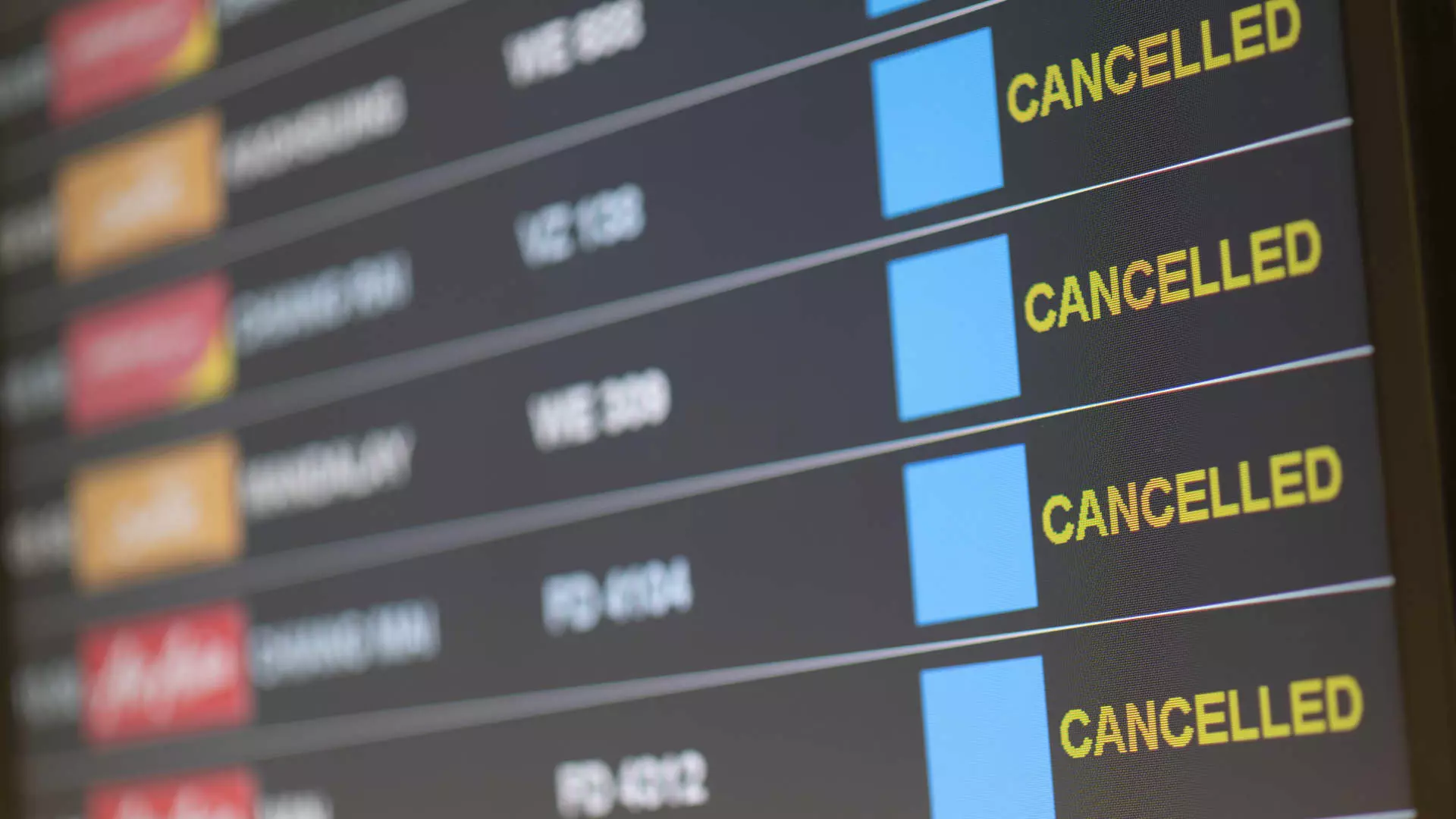Traveling during the summer season often comes with its fair share of delays and cancellations, causing frustration among passengers. According to experts, high season for flight disruptions typically falls between mid-June and the end of August. This period is characterized by more planes in the skies, frequent bad weather, and increased use of the nation’s airspace. FAA data from 2024 indicated that bad weather was responsible for 66% of total flight delay minutes, with volume accounting for an additional 15% of delays. These factors make it challenging for airlines to maintain their schedules and provide seamless travel experiences for passengers.
When it comes to reimbursement for flight delays and cancellations, airlines are not always obligated to provide compensation to passengers. The U.S. Department of Transportation mandates that carriers owe a refund of the ticket price and fees if they cancel a flight or make a “significant change” in the flight, regardless of the reason. However, consumers are entitled to a refund only if they choose not to accept an alternative option from the airline, such as rebooking on a different flight. It is important to note that the DOT does not have a clear definition of what constitutes a “significant” change, leaving some ambiguity in the reimbursement process.
Starting October 28, airlines will be required to promptly and automatically pay refunds to customers under a newly issued Biden administration rule. Additionally, the rule will define a “significant” change as a delay of three hours for domestic flights and six hours for international flights. While this regulation aims to provide greater clarity and protection for passengers, there are still variations in compensation policies across different airlines. These policies often depend on the root cause of the delay or cancellation and whether it falls within the carrier’s control.
Passengers flying to and from Europe may have more rights to compensation under European Union law. European regulations tend to offer greater protection for travelers in the event of flight disruptions, such as delays and cancellations. It is essential for passengers to be aware of their rights when flying internationally and to understand the compensation policies that apply to their specific circumstances. While travelers may have more recourse for reimbursement in certain situations, it is important to be proactive and prepared for potential disruptions during travel.
To navigate flight delays and cancellations effectively, experts recommend several proactive measures that travelers can take. Booking the first flight of the day and avoiding connecting flights can reduce the likelihood of disruptions. Leaving ample time for layovers and building in a buffer day at the destination can also help mitigate the impact of delays. Additionally, flying on less busy days, packing strategically, and multitasking while waiting for assistance can enhance the overall travel experience. By following these strategies, passengers can better cope with unexpected changes to their travel plans and ensure a smoother journey during the summer travel season.

